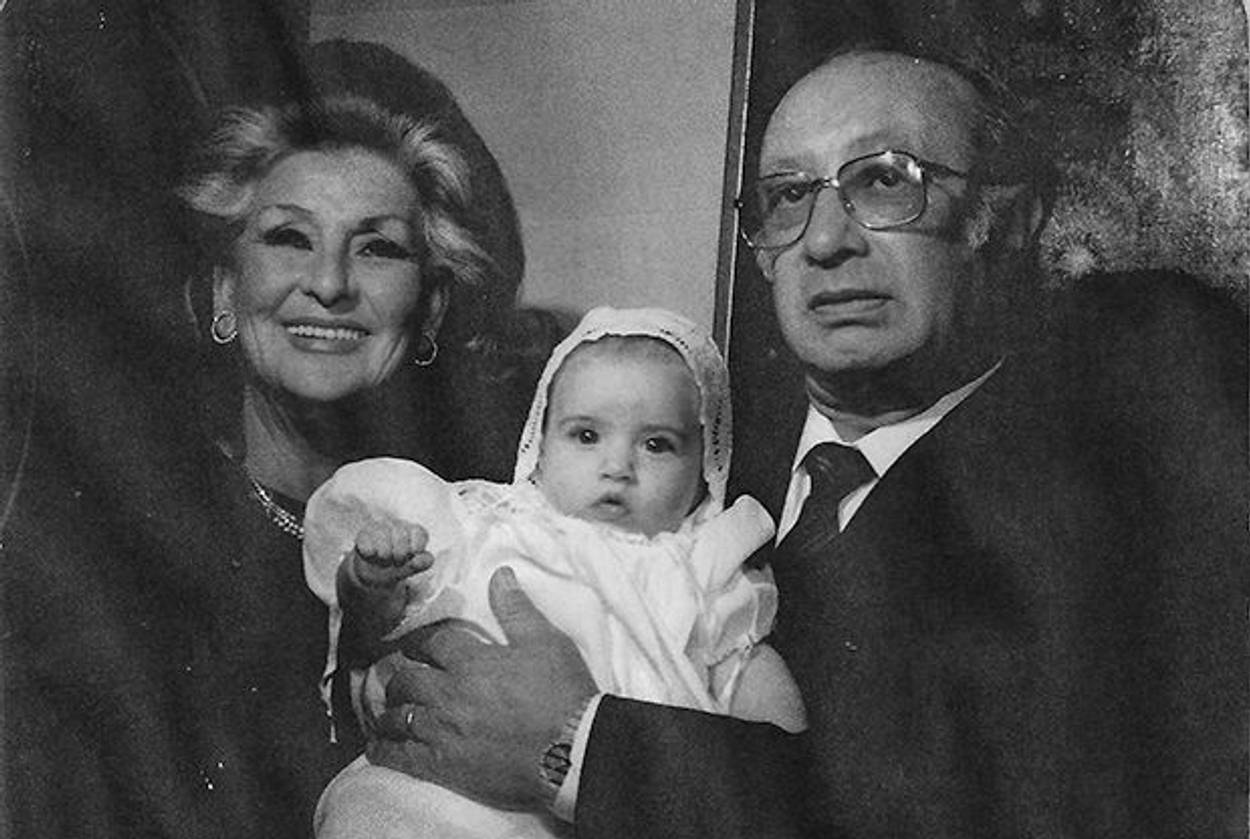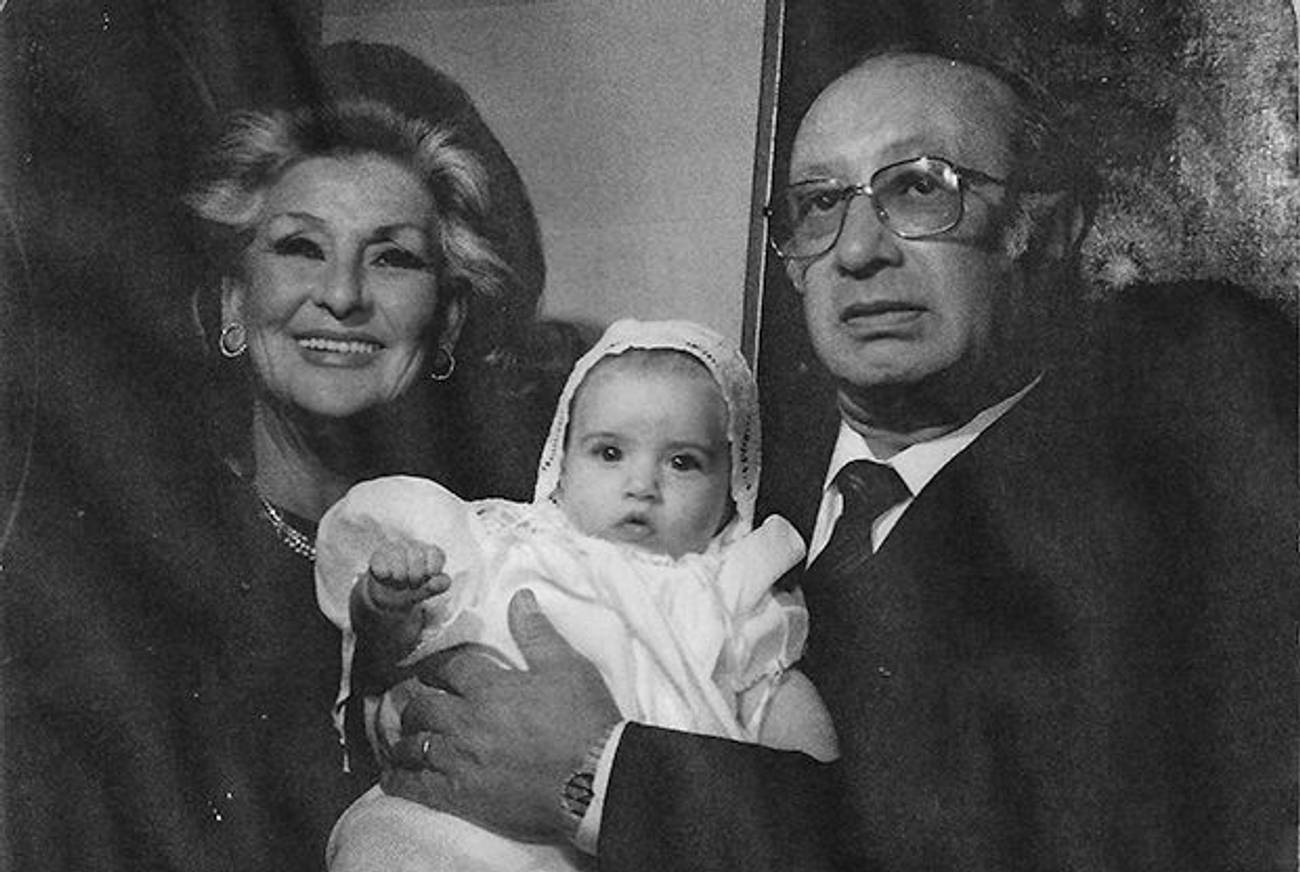A Weighty Inheritance
An excerpt from a new collection of essays by children and grandchildren of Holocaust survivors




I grew up in a Jewish home in a predominately Jewish town in a predominately Jewish suburb. I spent two hours every Monday, Wednesday, and Sunday at Hebrew School, and attended High Holiday services with my family at our local Conservative synagogue. I was Jewish, of course, just as everyone around me seemed to be, but I could sense early on that the world of Judaism in which I existed was just a bit different from everyone else’s.
None of my friends, after all, had great aunts and uncles and grandparents with inky numbers scrawled on their forearms. I understood it from a young age as something that set my family apart—set me apart—and somehow marked us, too. We were a family of Holocaust survivors, and that was the lens through which, unbeknownst to me at first, every Biblical account I read and every prayer I learned was filtered. From a young age, my faith was bound to my family’s legacy; their stories my ritual text, their sorrows my liturgy.
We eat matzoh to remember the unleavened bread our ancestors were forced to eat as they were fleeing Egypt, one of my Hebrew School teachers explained to the class before Passover one year. I remember instinctively raising my hand. We don’t eat scraps of potato, I countered, to glorify what prisoners in concentration camps were forced to eat. So why would we eat matzoh? I’ll always remember the look on my teacher’s face—a mix of perplexed surprise and resigned exhaustion that I understand far better now than I did then.
In my early teens I devoured books like Number the Stars and The Devil’s Arithmetic, unwittingly subjecting myself to nightmares about roundups and check-ins. I obsessed over the particulars of Anne Frank’s hiding quarters and wondered how people knew what to grab from their homes as they were being forcefully ushered out. My adolescent peers, I was certain, were not weighed down with the same crushing existential questions.
It was on a trip to Germany in 2005 to commemorate the 60th anniversary of the liberation of the Bergen Belsen concentration camp that I became distinctly aware of another set of emotions surrounding this part of my life: anger, and something I was surprised to find resembled jealousy. Also on the trip, which was sponsored by the local German government, were dozens of former inmates of the camp, plus a handful of children and grandchildren of survivors. My own grandparents, who met at the Displaced Persons camp at Bergen Belsen, had died when I was four years old, and my sister, my cousins, and I, then a senior in high school, seemed to be the only teenagers on the trip who weren’t sharing the powerful experience with their grandparents.
I realized then that I had missed out on years of questions, stories, and, more acutely, years of a real relationship with my grandparents. All I had were my pieced-together memories, grainy home movie footage, and second-hand accounts of their experiences during the Holocaust. The lore I had been consumed by when I was younger had been largely cobbled together from what I knew about them at the time, snippets of stories of my grandmother surviving because of her skill as a seamstress, of cousins and uncles looking out for each other during the war and after. It wasn’t fair, my 17-year-old self angrily thought. There were so many more things I needed to know.
It was on that trip that I learned about my grandparents from the people they had met at the DP camp, who would become lifelong friends after they all immigrated to the United States. I heard stories—and saw photographs—of a theater troupe my grandparents were a part of, and I ate meals in the same dining hall they would have eaten in after liberation. In that strange, unsettling place, I felt closer to them than I ever had.
When I got to college that fall, I enrolled in a course about Holocaust memory and memorials. I had never studied the Holocaust in an academic setting, and I wasn’t entirely sure how we were supposed to approach the topic with the same distance we afforded computer science or psychology. One of the first things I learned, thanks to the notes my professor repeatedly scribbled in the margins of my essays, was that the word ‘survivor’ wasn’t capitalized. That semester I discovered Paul Celan, Theodor Adorno, and Primo Levi, and immersed myself in discursive concepts like “laughter after” and the challenges of representation and memorialization. After nearly two decades of a rather isolating fixation on the Holocaust and its aftermath, I realized I was far from alone.
I’m no longer the young girl plotting escape routes from my parent’s house in case the Gestapo arrived one day, though I now understand where those impulses come from—and how to channel them in a productive direction. My life is the sum of many experiences, my own and those that preceded me, and I am very much a product of my family’s legacy, in the best possible way.
I think my grandparents would be pretty proud.
This essay appears in God, Faith & Identity from the Ashes: Reflections of Children and Grandchildren of Holocaust Survivors, edited by Menachem Z. Rosensaft, 2014. Reprinted with permission from Jewish Lights Publishing.
Stephanie Butnick is chief strategy officer of Tablet Magazine, co-founder of Tablet Studios, and a host of the Unorthodox podcast.